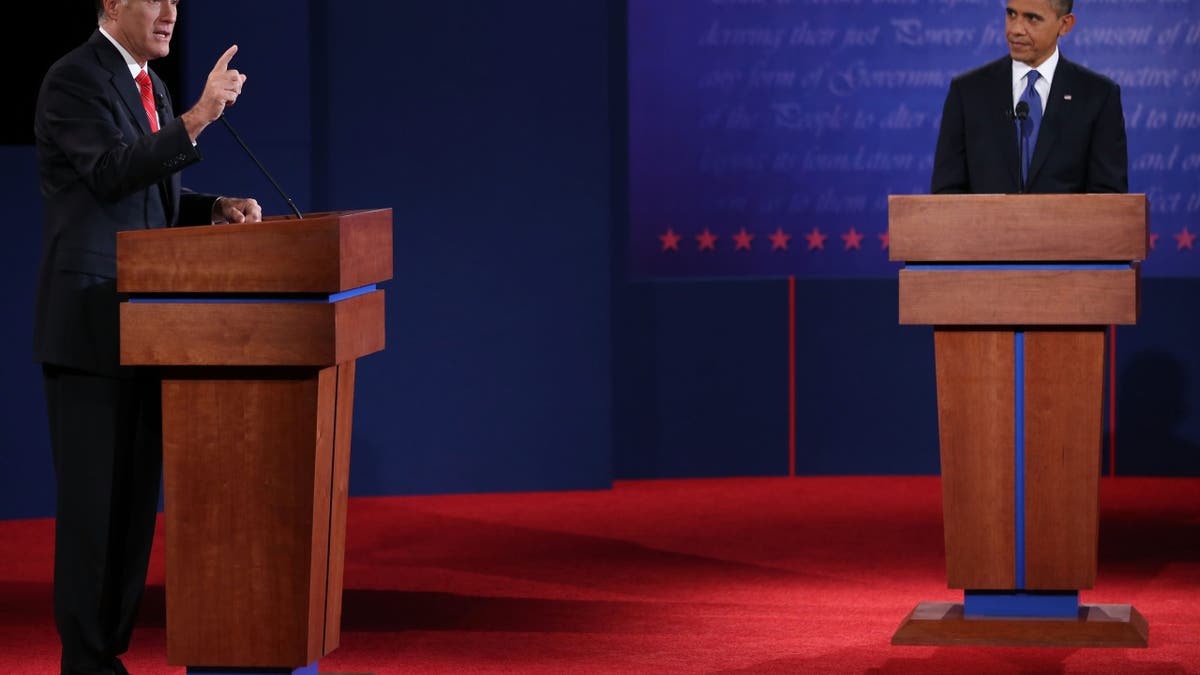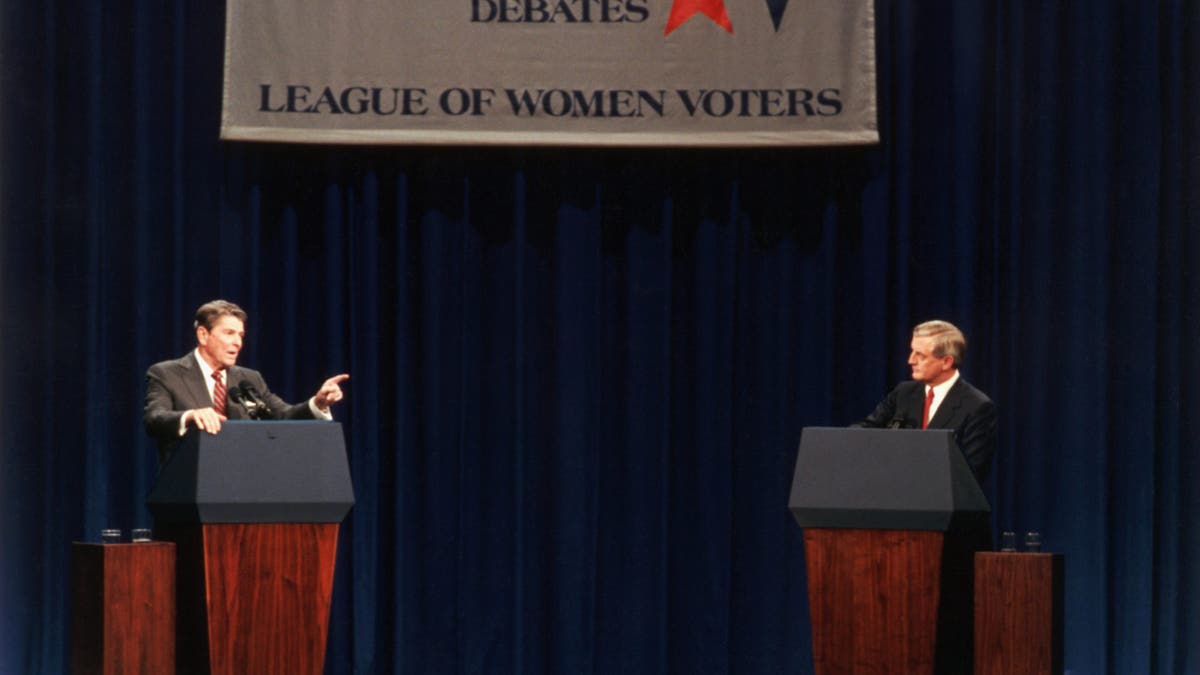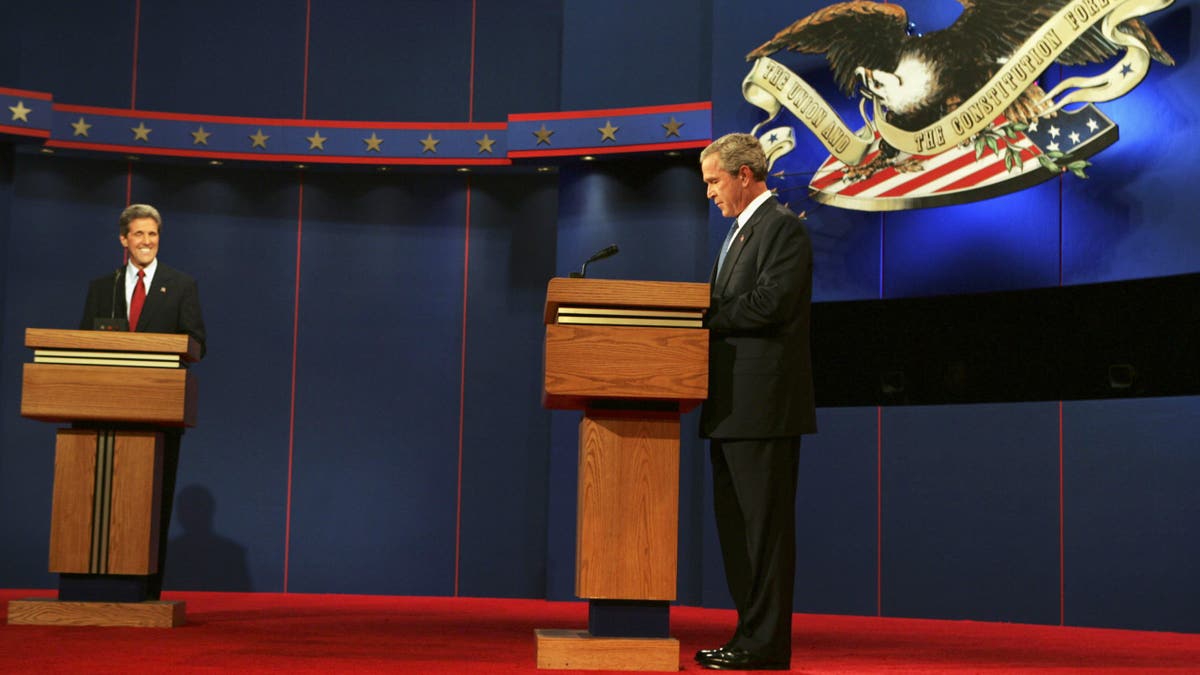President Biden’s weak first debate may not prove to be his ultimate undoing if history is a barometer. Incumbents often struggle to find their footing but, in the end, win re-election.
“Bad debate nights happen. Trust me, I know,” Barack Obama wrote on social media platform X Friday. “But this election is still a choice between someone who has fought for ordinary folks his entire life and someone who only cares about himself.”
Biden faced scathing criticism from the media and prompted reports of panic within his party after what many described as a disastrous faceoff with Trump. The pair stood even in the polls before the debate, but Trump gained a few points over the weekend after the debate.
Biden appeared to struggle with his answers and stumbled with his words, prompting Trump at one point to say, “I have no idea what he just said.” Democratic governors have scheduled a meeting with Biden for later this week, and Rep. Lloyd Doggett, D-Texas, on Tuesday became the first elected Democrat to urge Biden to withdraw from the 2024 presidential race and allow a new candidate to face Trump.
TEXAS CONGRESSMAN BECOMES FIRST ELECTED DEM TO CALL ON BIDEN TO WITHDRAW FROM ELECTION: ‘TOO MUCH IS AT STAKE’
Biden Campaign Chairwoman Jen O’Malley Dillon pointed to history to defend the president’s performance, telling NBC in an interview that “every incumbent president that I can remember in my lifetime has had a s—– first debate.”
“Obviously, the stakes are higher for us because we are up against Donald Trump,” she continued. “Obviously, we have more work to do because the president is 81, but it was also a terrible debate in 2012. I was there. I remember it clearly.”
Dillon argued that June was early enough in the campaign cycle for Biden to correct course as several of his predecessors have managed to do.
Obama faced a baptism of fire following his first debate with Republican nominee Mitt Romney in 2012, waking up to see such headlines as “Why was President Obama so bad?” from the likes of the liberal-leaning Washington Post.
Politico’s headline said, simply, “Obama stumbles” after the Oct. 3, 2012 debate in Denver, the first of three that saw Obama win his second term despite weaknesses the press had seized on from that first night.
The Washington Post claimed the Obama seen on the debate stage in Denver “was virtually unrecognizable to the person who swept to victory in 2008.” Al Gore tried to defend the president by arguing he was possibly caught off guard by Denver’s unusually high altitude.
BIDEN MEETING WITH DEMOCRAT GOVERNORS WEDNESDAY AFTER DISASTROUS DEBATE PERFORMANCE
No one will forget how Ronald Reagan gave a limp performance in the Oct. 7, 1984, debate against Walter Mondale in Louisville. Reagan held a commanding lead in the polls despite concerns about his age. At the time, he was 73, the oldest person to ever hold the office of president. But the polls narrowed by seven points, reflecting the view that Mondale had trounced his opponent, according to Slate.
Polling conducted after George W. Bush’s first debate against opponent John Kerry in 2004 found voters considered Kerry the winner by a two-to-one margin, and Pew Research found that while Bush overall maintained his lead, his margin “slipped” over the following weekend.

In fact, Pew noted that, for the first time in its 16 years analyzing polls, a Democratic candidate made a better showing among likely voters than on the basis of all registered voters. The organization labeled the “high level of Democratic motivation to vote” as “surprising” as only half of Democratic voters seemed convinced Kerry would win the election.
Many described Bush as “defensive” and “nervous” in his responses even though they also described Kerry as “arrogant” and, at times, “indecisive.” Those polled also found Bush to be “honest” compared to the more “confident” Kerry.

In the case of Bush versus Kerry, Pew made clear the motivation of voters often can override perceived performance in a one-off debate. Bush’s supporters “overwhelmingly” wanted to vote for him rather than against Kerry while Kerry’s supporters were more interested in voting against Bush than for Kerry.
Brett O’Donnell, a Republican communications strategist and president of O’Donnell & Associates, told Fox News Digital that sitting presidents can effectively get lost in the weeds on policy and major issues facing the country and “don’t take debate prep seriously.”
HARRIS OUTPERFORMS BIDEN IN 2024 SHOWDOWN WITH TRUMP: POLL
“They deal with these issues in a very deep way, more so than they did as candidates, as president,” O’Donnell said. “So, I think they confuse knowing the issues with being able to perform in a presidential debate.
“I call it the incumbent trap, and it actually goes back further than that because Carter’s first debate with Reagan was a disaster. So, these guys — the incumbents — seem to … they forget the importance of performance as they need to know issues.”
O’Donnell argued that while he doesn’t like to ascribe an advantage to one side or the other, he believes Republicans have a “better message,” and that makes it easier to connect with Americans.

“It’s the message of the American Dream, where if you work hard, play by the rules, that there are opportunities in this country that you can take advantage of,” O’Donnell explained. “The Democrats’ answer to that has always been government, and I don’t think that’s a particularly effective message for the public at large.
“It might be for some segments of the audience, but it’s not generally for the American public. They want to believe in the American Dream, and Republicans have defended that for decades.”
As O’Donnell noted, a few incumbents have failed to perform in their first debates and ultimately could not overcome their opponents, failing to win re-election, starting with President Carter.
Fox News Digital reached out to several Democratic strategists, but none replied before publication.
Read the full article here











